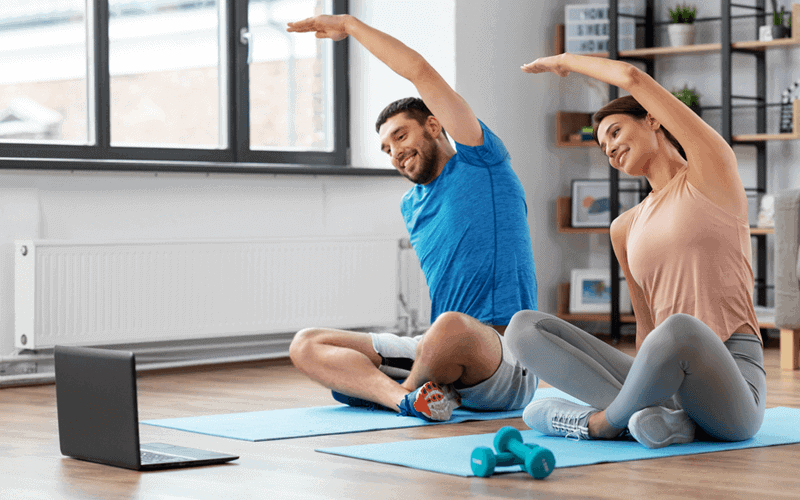How Can Muscle Rehabilitation Therapy Improve Muscle Function?

In our daily life, we do many things that involve our brain, bones, and muscles. Our muscles contract and relax to let us move our hands, legs, and do activities. Muscles have important jobs like helping us move, keeping us upright, and producing heat when we use energy. But sometimes, things like injuries, falls, medicines, or swelling can affect how our muscles work.
This is where muscle rehabilitation therapy comes into the picture. This therapy helps us get back our muscle strength, flexibility, and ability to move well again. By doing this, we can feel better and do the things we love without any problems. So, taking care of our muscles and getting the right therapy can make a big difference in how we move and live our lives.
Contents
- Reclaim Your Muscle Health!
- A] Understanding Muscle Function and Dysfunction
- B] The Role of Muscle Rehabilitation Therapy in Muscle Function Improvement
- C] Common Physical Therapy Techniques in Muscle Rehabilitation Program
- D] Rehabilitation Therapy and Long-Term Muscle Function
- Conclusion
- Reclaim Your Muscle Health!
A] Understanding Muscle Function and Dysfunction
Our muscles perform gross movements like walking, running, and swimming, and fine movements like writing, expressions and speaking. The gross movements are controlled by the large muscles and fine movements are controlled by the smaller muscles.
The muscles that stretch over the joints help to stabilise the joint. These muscles contract and help in joint movements and also prevent any injury. The abdominal muscles prevent any injury to the spine while bending down or any forward movement.
Common causes of muscle dysfunction:
- Injury and trauma: Injuries like sprain, or strain can lead to a muscle injury that causes muscle inflammation and weakens the muscle function.
- Muscle imbalances and weaknesses: Muscle imbalance and weakness are caused by muscle exhaustion, severe stress, muscular disorders, viral infections, inflammations or prolonged use of certain medicines.
- Neurological conditions: Neurological conditions like muscular dystrophy, autoimmune diseases or hormonal imbalance can cause muscle dysfunction.
- Ageing and disuse: Ageing and prolonged immobility or no use of muscles leads to muscle wasting, shrinkage of muscle cells and reduction in muscle cell number.
B] The Role of Muscle Rehabilitation Therapy in Muscle Function Improvement
Muscle rehabilitation therapy is an alternative therapy used to improve muscle function. This has to be practised along with the medication and other treatments for best results. Muscle rehabilitation therapy helps to improve the overall performance of the muscles by increasing strength, agility, speed and endurance. Muscle rehabilitation is effective to treat chronic pain. It is necessary to undergo rehabilitation with a certified professional for positive results. So, begin your journey towards a healthier and painfree future today! Contact Sudam Shelar, one of the best fitness trainers in Mumbai, and unlock the benefits of muscle rehabilitation therapy today!
Muscle rehabilitation therapy includes physical exercises like stretching, joint exercises, and strength training. It also includes physical treatment with the use of ultrasound or electrical stimulation and laser techniques. The main aim of muscle rehabilitation is to heal the injury faster, increase muscle strength, improve the range of motion of joints and prevent any further injury. Rehabilitation therapy speeds up the healing process. It helps you to perform your activities independently.
Benefits of Rehabilitation Therapy for Muscle Function Improvement
- Pain management and reduction: Rehabilitation therapy helps to reduce inflammation and improves blood flow to the injured area. This helps to reduce pain and quicken the healing process.
- Restoring range of motion and flexibility: With rehabilitation, the muscles stretching over the joints strengthen, get better contraction and relaxation, and keep the joint intact.
- Strengthening weakened muscles: Rehabilitation therapy helps in improving muscle strength, agility, flexibility and tenacity. It improves blood circulation, reduces pain and reverses muscle weakness.
- Enhancing coordination and balance: With age there is a reduction in muscle mass and size. It also makes older people lose their balance while walking. Rehabilitation therapy for older people makes them improve their coordination and balance.
- Improving overall muscle function and performance: Rehabilitation therapy improves muscle function, bone strength, reduces pain, manages inflammation and increases flexibility. Therapy lessens the recovery time and improves overall muscle performance.
C] Common Physical Therapy Techniques in Muscle Rehabilitation Program

Muscle rehabilitation includes physical exercises which can be passive or active. It focuses more on strength training. In severe cases, ultrasound or electrical stimulation is used to improve blood circulation, reduce muscle inflammation, reduce pain and strengthen the muscle.
- Exercise programs and stretches: The treatment starts with stretches that increase the blood flow to the affected area. This increased blood flow helps to perform exercises better and heal the affected areas. Exercise programs are designed which are area specific that reduce the healing time.
- Manual therapy techniques: Sometimes the movement of joint muscles is restricted. You need assistance to perform even the minimum activity. This is when joint and muscle mobilisation and massage help to reduce inflammation and heal the muscles.
- Heat and cold therapy: As soon as you injure your muscles, the first line of treatment is to apply an ice pack. This helps to prevent any internal bleeding and reduce inflammation. With long-term injury, you can apply heat therapy that helps to increase the blood flow to the affected area and help reduce the inflammation.
These muscle rehabilitation techniques make the treatment more effective if performed with the correct method and under the supervision of professionals.
D] Rehabilitation Therapy and Long-Term Muscle Function
1. Maintaining muscle function gains after therapy
Any muscle injury hinders normal muscle functions. Not using that muscle or chronic inflammation can make the muscle weak, reduce the muscle size and restrict its range of motion. Muscle rehabilitation therapy gradually helps to increase muscle mass. It strengthens the joints, bones and muscles and enhances brain and muscle coordination. But, this strength needs to be maintained by regular stretches and exercise programs to maintain its function or else it will weaken the muscle and make you prone to further injury on the affected area. Maintain muscle function by correct nutrition, medicines, exercise and the right mental attitude.
2. Incorporating exercise and fitness into a daily routine
Rehabilitation therapy is not a few days or a few weeks of therapy. You need to include those exercises in your daily routine workout to maintain muscle integrity. Daily warms ups, stretches and exercises keep good blood flow, reduce inflammation, and improve joint function. Always start your workout with stretches that improve muscle flexibility and prevent any exercise-related injuries. Raising your heels and toes, stretching your arms and rotating in clock and anti-clock directions, twisting and bending your back, squats, and lunges are a few stretches that you can perform. Surya Namaskar is one of the best yogasana that helps to improve overall muscle strength. Weight training improves muscle strength and range of motion.
3. Healthy lifestyle habits to support muscle function
Only exercise will not help to heal your injuries. You need to follow a healthy lifestyle to maintain muscle and bone health. Eat a clean diet, maintain an ideal weight and increase daily physical activity to enhance muscle function. Eat more protein that will help to maintain the wear and tear of the muscles. Consume enough carbohydrates that can provide energy for performing the exercises daily. Omega 3-rich fat sources help to reduce inflammation and aid muscle healing. Avoid smoking that calcifies the muscles and hinders muscle function. Avoid alcohol which leads to water retention in the body and worsens the inflammation.
Conclusion
Muscle rehabilitation therapy increases muscle strength, improves the range of motion, strengthens bones and prevents any further injury. Regular exercises and stretches help you to maintain muscle flexibility, make you independent and improve your quality of life.
Don’t hesitate to reach out to me for a personalised rehabilitation protocol tailored specifically to your injury. Get in touch now for the best possible support on your road to recovery!

Sudam Shelar
Sudam Shelar is a certified fitness expert and health coach, specializing in personalized training and nutritional guidance for optimal well-being. With a keen focus on dynamic workouts, corrective exercises, and tailored programs, he excels in muscle rehabilitation, personal training, and holistic wellness.


Leave a Reply